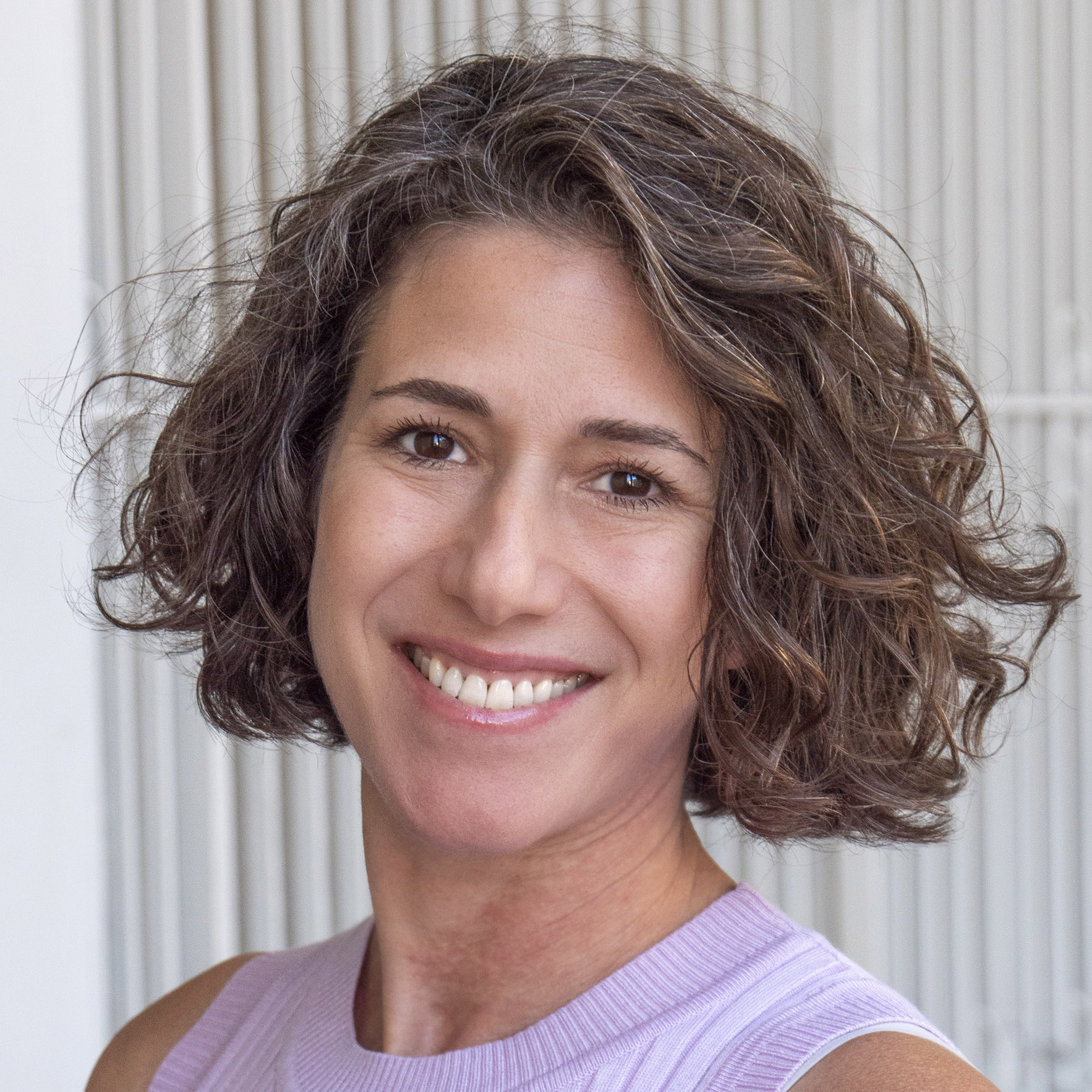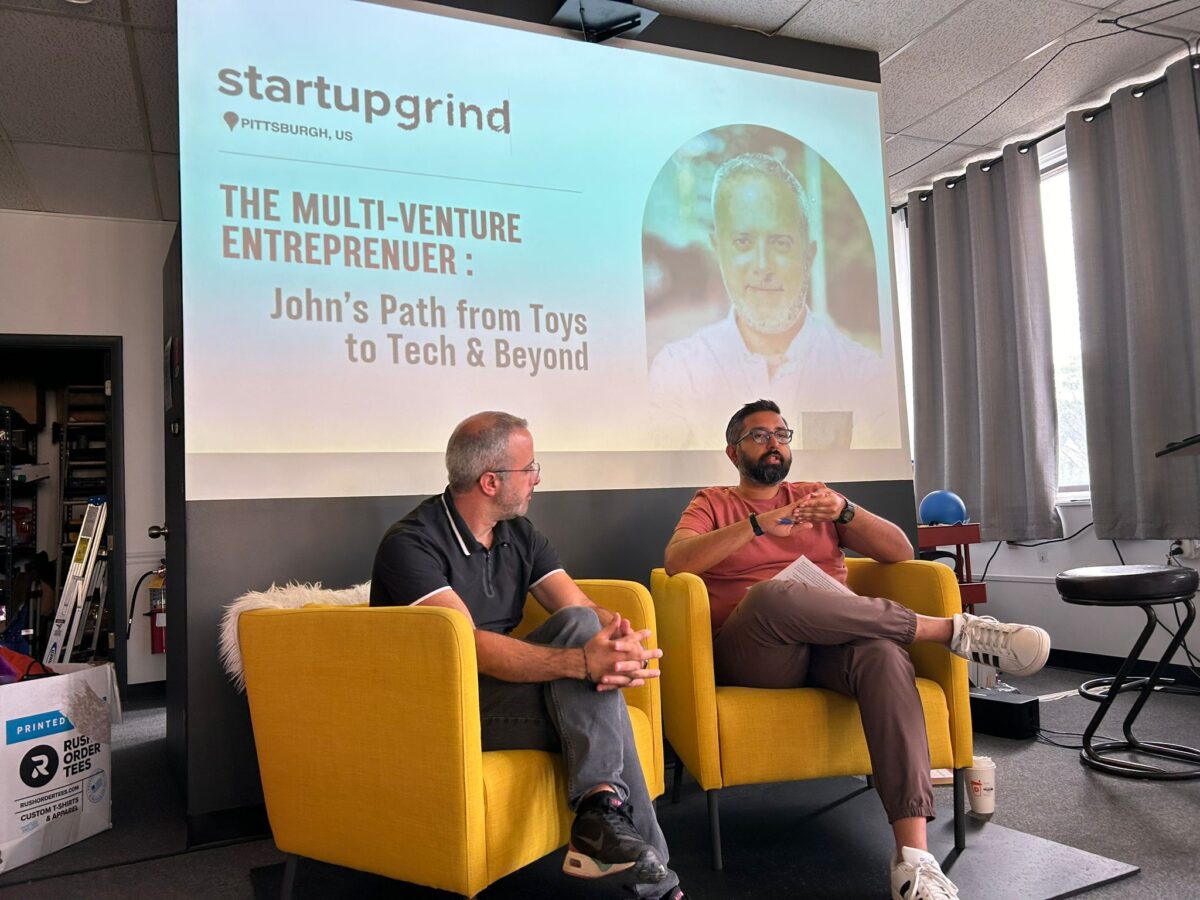
Technical.ly is a free news resource thanks to financial supporters like AI Horizons Pittsburgh, which underwrote this story. It was not reviewed before publication. Learn more about AI Horizons Pittsburgh here.
Don’t just tell investors your company is AI-powered. Prove it.
That’s advice from Ani Kapuria, principal at Wexford-based Blue Tree VC, for founders looking for their next raise. Kapuria knows this not just because of his venture capital experience, but because he’s also a startup founder himself.
Kapuria, 38, recently completed his master’s of business administration at Carnegie Mellon University while working in VC, and his spinout Conduit came out of his capstone idea. Alongside cofounder Max Holmes, Kapuria launched the workforce platform in 2023.
“We teamed up and actually found success more than we thought,” Kapuria said. It’s raised $25,000 and landed a coveted spot in the Ascender PGH incubator program. “Before I knew it, we had cofounded a company, and we’re building it up.”
Still, Kapuria’s main gig is VC. That job recently relocated him to Chicago to help BlueTree branch out its midwestern business, but he still goes back and forth to Pittsburgh to keep up with the company’s HQ.
In this edition of Technical.ly’s How I Got Here series, Kapuria shares what he learned from his first tech gig as a founding engineer, his due diligence process to weed out startups using AI as a buzzword and more.
This Q&A has been edited for length and clarity.
What was the beginning of your tech journey?
It was definitely in college. I actually started at the University of Texas, not in the Austin branch, and my goal was to do biology.
I found sciences to be a little bit non-challenging. I needed some more mathematics, maybe some quantitative technical lean to it. I switched majors, transferred to the University of Texas at Boston, and pursued biomedical engineering.
My love for all things technical came from that, and has been part and parcel of the entire career journey since then. It’s a heavy technical lean to the space I’m working in.
What was your first job in tech?
I tried to be a founding engineer at a medical device company. There was a doctor, and he was going to be the expert, and he was going to do the commercial thing. My job was to build a prototype for this device. We went down the route for eight months or so. It didn’t go so well.
I got an offer from a small consulting technical support firm, so I took the leap and left that behind. I was in consulting for a good 10 years before moving back closer to the startup space in the VC role that I’m in now.
How did leaving that first startup, and consulting for many years, impact where you landed as a VC today?
I did not even realize what I was giving up by leaving the startup. Imagine if that had taken off. Apparently the doctor did end up building a company out of it, but not the product I worked on.
I should have expanded that further than just the trial of my prototype to understand the business side of it better and really appreciate what fun it is to work out of not having any structure or not having any real direction to take.
Then, after working in big corporate spaces for a while, I realized that I missed that space of unknown, nebulous structure and making something out of it. It gives you an opportunity to be creative as well as apply technical learning.
Now, I function as the Midwest partner for BlueTree VC. We invest at the Series C and Series D stage. I’m also a cofounder at a startup, Conduit. That operator experience has been very useful to take an operator look in relation to the companies, as opposed to a more financial and higher level view.
What does ‘human-first AI’ mean to you?
There’s a balance in which delivery of AI capabilities is a replacement of labor and how it can be integrated to a user base or a population base that is not using it today.
Some of that is large language modeling [LLM] because now instead of searching for complex things online, the system understands and can do it for you. Some of that is like human-centered design in its application. Then, I also have to keep in mind: Are you building something that is eventually just going to replace workers?
I’m sure, cool companies out there that are doing it — where they’re replacing dangerous jobs — I can see social impact. But as someone who’s always kept social impact at the back of their mind, it’s tough to wrap my head around.
I have to think about it both from a usage perspective and then the eventual impact, where it comes to upskilling workers faster, or it comes to being able to take certain skill sets and reuse those in different applications.
As a VC, what do you look for in a company that says it ‘has AI’ — given how it’s become a catch-all buzzword?
All the AI investments that we’ve made so far, I know the companies are trying to do good in the end. That’s been at least my focus with the kind of deals I try to give, and the discussions we have within our team.
A decent part of our diligence process, or our initial discovery process, is that we’re looking for some proprietary-ness around it. That could be a pattern of usage or unique trademarking or copywriting.
What works really well is if there is a technical layer that’s not AI that’s foundational to the business, and AI is enhancing that layer. There’s a lot of companies that are reliant on the fact that there’s an accelerated language processing model out there that is way faster than manual work, but it’s not inherently unique. It’s just an AI layer.
What do you do outside of work?
I’m an avid photographer, especially if I can mix that with travel. I’ve been technical for a very long time, and for a long time, creativity was not part of that.
I gravitate toward hobbies that allow creativity to happen. Photography is just that, but it’s also so much math in settings like exposure and depth perception.
What’s next for you?
Personally, I’m expecting my first child and I’m going to try balancing my time a little bit better to spend some more time with the baby and hope that I can balance it all out.
Work-wise, I’m gearing toward the next big milestones for Blue Tree, finding the next two years of investments.
Join our growing Slack community
Join 5,000 tech professionals and entrepreneurs in our community Slack today!
Donate to the Journalism Fund
Your support powers our independent journalism. Unlike most business-media outlets, we don’t have a paywall. Instead, we count on your personal and organizational contributions.

Maryland firms score $5M to manufacture everything from soup to nanofiber

National AI safety group and CHIPS for America at risk with latest Trump administration firings

Immigration-focused AI chatbot wins $2,500 from Temple University to go from idea to action



